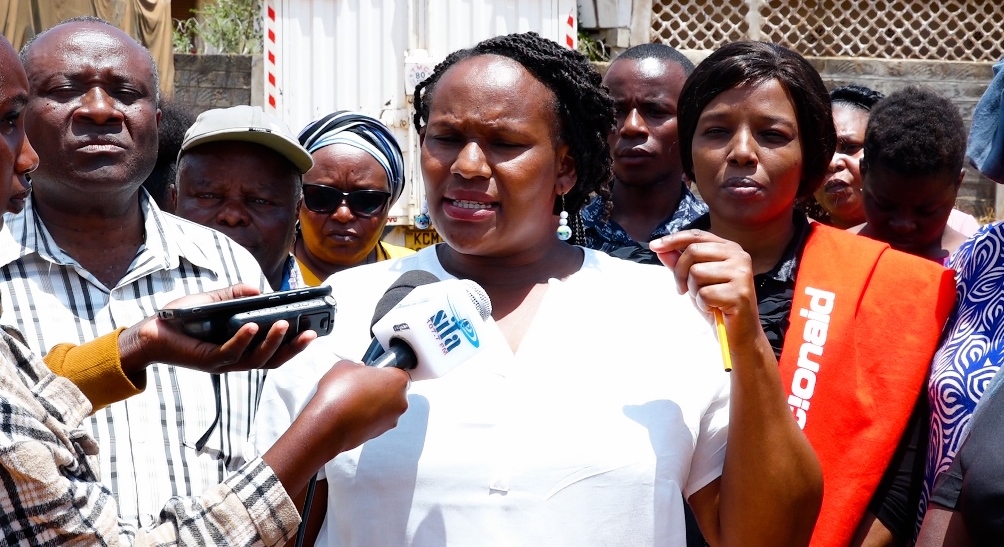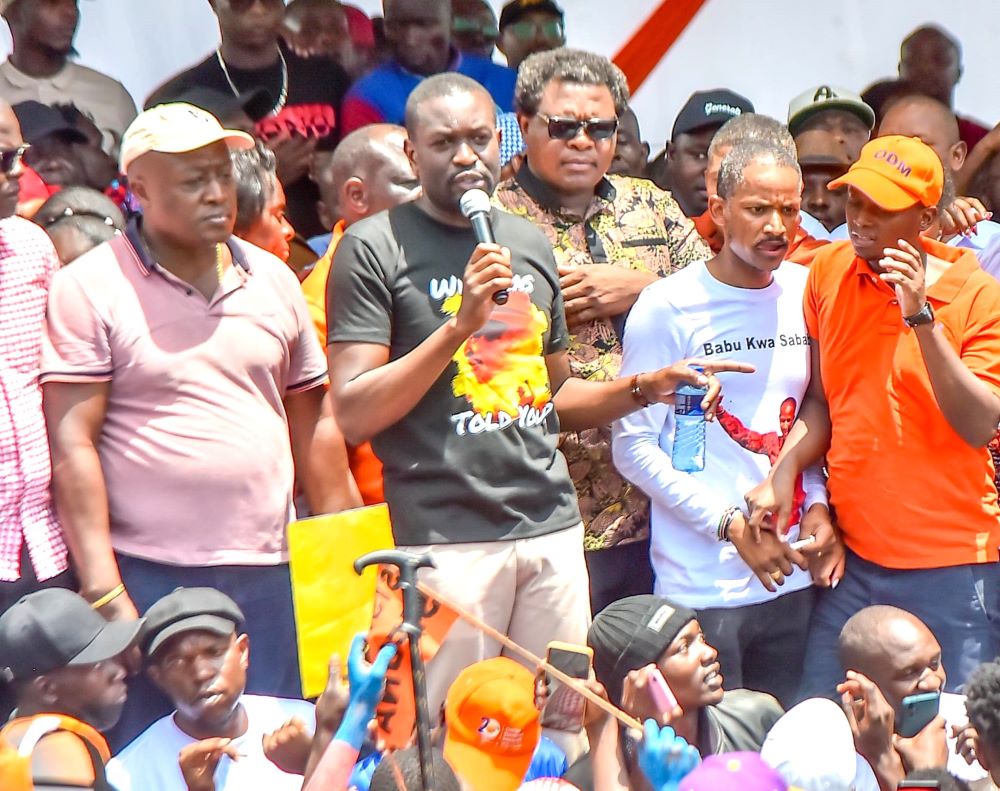Civil Society Organizations in Taita Taveta County have expressed strong dissatisfaction with development projects approved by Members of County Assembly for the 2025-2026 budget period, citing misaligned priorities that fail to address the real needs of vulnerable populations.
Speaking during a press briefing in Voi town on Friday, Mercy Mwakio, representing the CSOs caucus, criticized the county leadership for approving projects that do not benefit women, youth, people living with disabilities, and the wider community despite consuming large portions of the county budget.
“The approved development projects fail to address critical issues facing our vulnerable groups who continue to lack access to quality healthcare, clean and safe water, adequate road networks, and limited opportunities while gender-based violence cases continue rising,” Mwakio stated.
The CSOs cited the County Government Act 2012 and Public Finance Management Act 2012, which require development plans and resource allocation to be guided by public participation and equitable distribution of resources.
They argued that genuine community involvement, especially of marginalized groups, is not optional but a legal and constitutional requirement for elected leaders.
“As a community, we strongly believe that development must be people centered and responsive to all the actual needs on the ground. When projects ignore the voices of women and community, youth and people living with disabilities, they become political tokens rather than genuine instruments of change,” the statement reads.
The statement adds that, “Therefore, we call upon the county governments to revisit the so-called empowerment projects and ensure they align to the CIDP 2022/2027 and the real needs of the communities. Respect constitutional provisions and public participation and create spaces where women, youth and people living with disabilities are heard and acted upon.”
Ridhiwani Mwakio, Secretary General of Taita Taveta CSOs Network and founder of Citizen Network for Rural Development, echoed the concerns, faulting MCAs and county leaders for not working in accordance with the law.
He criticized the growing practice of MCAs allocating funds to purchase chairs, tents, sufurias, and footballs as empowerment projects.
“Leaders should prioritize things that will bring money into the pockets of women and youths instead of tents and other items. Youths are unable to plan for their lives due to lack of money, and if they get something to generate income, it will be more helpful than being given footballs,” Ridhiwani noted.
READ ALSO:
Kenyatta University A- student from Kitui caught in HELB betting addiction calls for help
He urged the county to align their County Integrated Development Plan (CIDP) with the Sustainable Development Goals to create development plans that truly help citizens.
The CSO leader warned that if their concerns are not addressed, they will establish a Governor-CSOs roundtable consultative forum to find better ways of developing the county.
Macrina Mwamburi from Sauti ya Wanawake Taita Taveta County highlighted gender-specific budget concerns, revealing that for two consecutive years, gender affairs have not received any budget allocation.
She recounted how in 2023/2024 financial year, when women’s groups petitioned the county assembly over the lack of gender budget allocation, they were met with hostility.
“Police were sent and they told us that we had gone there to disrupt them. After that, they brought a supplementary budget, and that has been the tactics the Taita Taveta county assembly is using,” Mwamburi said, adding that this approach hinders county development.
She emphasized that empowerment does not mean providing chairs, sufurias, or fences, but rather showing people how to generate income and develop themselves economically.
Youth representative Dickson Mwakio complained about the disconnect between public participation forums and actual budget implementation.
He cited his ward where the MCA allocated over one million shillings to purchase chairs as an empowerment project.
“If I get that chair, I’ll use it to sit on and I’ll not make anything out of that. Leaders should come up with empowerment programs that will help citizens put money in their pockets rather than items that won’t generate income,” he said.
Andrew Malagho, representing Legha Kima Elders Association from Voi, expressed disappointment with the county leadership’s failure to deliver development projects. He criticized MCAs for not fulfilling their mandate of representation, proposing, and making laws, instead attempting to perform executive functions.
The CSOs are demanding that county government revisit the approved projects to ensure alignment with CIDP 2022-2027 and real community needs.
They want constitutional provisions on public participation respected and meaningful spaces created for marginalized groups to be heard.
They are also calling for resource redirection toward programs promoting gender equality, healthcare access, clean water, education, and economic empowerment.
The organizations emphasized that MCAs should maintain their constitutional mandate of oversight, legislation, and representation, leaving project implementation to the executive branch.
The CSOs reaffirmed their commitment to work with the county government to promote inclusive development but warned they may escalate their advocacy if their concerns remain unaddressed.
By Michael Oduor
You can also follow our social media pages on Twitter: Education News KE and Facebook: Education News Newspaper for timely updates.
>>> Click here to stay up-to-date with trending regional stories
>>> Click here to read more informed opinions on the country’s education landscape






